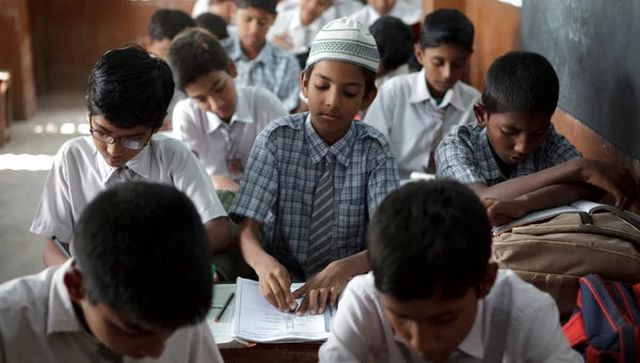Policy experts demand 4% reservation for 50 marginalized castes among Indian Muslims

Members from the Centre for Development Policy and Practice (CDPP) and the Dua Foundation met on December 9 in Aurangabad, Maharashtra to discuss the requirement of educational reservations for the underprivileged sector of the Muslim community.
Ansab Amir | TwoCircles.net
MAHARASHTRA – Several expert groups and organizations from Maharashtra have proposed a 4% educational reservation for fifty marginalized castes amongst Muslims, drawing upon statistics from various research and findings.
Members from the Centre for Development Policy and Practice (CDPP) and the Dua Foundation met on December 9 in Aurangabad, Maharashtra to discuss the requirement of educational reservations for the underprivileged sector of the Muslim community.
Prime Minister Modi's dream of India becoming a 5 trillion economy will not be accomplished if women, constituting over 49% of the Indian population, and Muslims, who comprise 14% of the population, are not included in the mainstream, Amir Ullah Khan, an economist and the director of CDPP said during the meeting.
Professor Shaban of the Tata Institute of Social Sciences (TISS), who attended the meeting from Paris, summarised the findings of various committees and commissions' surveys and insisted that the Mahmood-ur-Rehman Committee recommendations be put in place, including a 33% reservation for Muslim women, a minimum of 8% reservation in state services and education, the incorporation of Dalit Muslims into scheduled caste, and the subsequent expansion of the Other Backward Classes list.
Dr Mahmood-ur-Rehman was appointed to investigate and provide solutions for the backwardness of Muslims in Maharashtra in 2008 by the then-Chief Minister, Villasrao Deshmukh, whose recommendations were subsequently called the Rehman committee recommendations. The primary recommendation of the report was to have a minimum of 8% reservation of Muslims in state government services, educational institutions, and the housing sector (with an internal one-third reservation for women). Some of its other recommendations were the inclusion of marginalized castes of Muslims in the scheduled caste category, and the immediate implementation of the cultural diversity index, and to investigate reasons behind the disproportionate share of Muslims in state jails, among others.
Sagheer Khan, a high court advocate who spoke about the socioeconomic conditions of Muslims in Maharashtra, remarked that 47-57% of Muslims, Dalits, and scheduled tribes were denied bail, whereas the upper classes and influential individuals were exonerated and had a bail rate of 97 % for similar crimes.
According to experts and various surveys and commissions, 83.2% of Muslims in the state do not have agricultural land, 56% of the Muslim population in Maharashtra does not own any assets, while only 0.7% of Muslim families garner something beyond Rs 3.6 lakh per year, while every third person in jail is a Muslim.
The meeting is critical in the light of recent statements about Muslim reservation by the Member of Parliament from Aurangabad, and member of the All India Majlis Ittehad Ul Muslimeen (AIMIM), Imtiaz Jaleel.
On Monday, he said that his party would not contest upcoming polls to the local bodies in Maharashtra if the NCP-Shiv Sena-Congress alliance government gives 5% reservation to Muslims, and return the 93,000 acres of land belonging to Waqf Board.
Two days after taking out a Tiranga rally and holding a demonstration in Mumbai, Jaleel demanded a special bill to be brought during the Winter Session of the parliament, for the legislature of Muslim reservation.
“Every time we raise our voice for the Muslims, it is called a political gimmick. Hence, we are giving an open challenge to the Maharashtra government, that we (AIMIM) will not contest in any upcoming local polls in Maharashtra if it gives reservations to Muslims,” Jaleel said.
Jaleel, who was participating in the meeting, said that it's the first stage in assimilating the community into the mainstream and moving towards the overall growth of the country. "We will not be afraid to take to the streets to obtain what Muslims deserve," he stated.
Ansab Amir is an intern with TwoCircles.net. He tweets at @ansab_amir.
